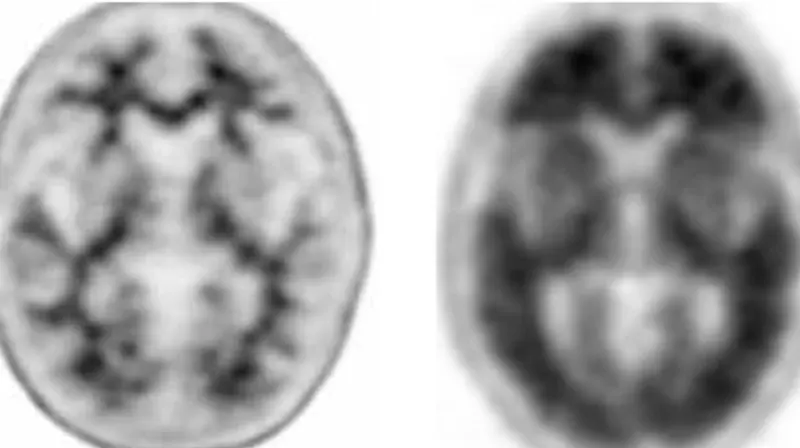New Breakthrough Test For Alzheimer’s Disease
February, 2017
Cyrus Khorrami, MD
Radiologist, Medical Director

As their parents are getting older, my friends approach me with their concerns. Some of these parents are becoming more forgetful. Some are changing their personalities, becoming angrier, stubborn or confused. My friends ask whether this is a normal part of aging, or if this is dementia. They are terrified that their parents are suffering the beginnings of Alzheimer s disease. Until recently, there have been few tests able to detect Alzheimer’s disease. New cutting edge technology has given us a test that shows incredible promise.
Q: What is Alzheimer’s disease?
A: Alzheimer’s is a type of dementia that causes dysfunction in thinking, behavior, and memory. It is estimated that 5.4 million American have Alzheimer’s disease. Of that, 5.2 million are age 65 or older. Symptoms usually start mild with slight confusion and difficulty remembering newly learned information. However, symptoms progress over time and can become debilitating, including such symptoms as deepening confusion, personality changes, disorientation and profound memory loss.
Q: What causes Alzheimer’s disease?
A: We have over 100 billion nerve cells in our brain. These nerve cells connect to each other using nerve fibers and they pass information along. In Alzheimer’s disease, proteins (called beta amyloid) can form and interfere with the way the brain nerve cells function and communicate with one another. The nerve fibers can twist and tangle, further disrupting normal brain function. It is not uncommon for an elderly person without Alzheimer’s to have a few of these beta amyloid proteins and tangles. Those with Alzheimer’s disease have many of these lesions.
Q: If I suspect someone I love has Alzheimer’s disease, how do we diagnose it?
A: There is no one test that can diagnose Alzheimer’s disease. Usually a physician will conduct a physical exam as well as neurological and mental status testing. Usually an MRI of the brain will be performed to exclude a tumor, bleeding, or stroke as a cause of a patient’s mental decline. There is a new test that is gaining lots of attention. A new radioactive compound called Amyvid (also known as Florbetapir F-18) has been created that binds directly with beta amyloid plaques (the protein that causes Alzheimer’s disease). Using a PET/CT machine, one can detect whether beta amyloid is present in the brain. This has been called “amyloid imaging”.
Q: Are there any clinic trials for someone to be enrolled?
A: The Centers for Medicare and Medicaid Services (CMS) is currently conducting a huge trial to determine whether “amyloid imaging” using Florebetapir can improve clinical detection and patient outcomes. Local neurologists and dementia specialists who participate in this monumental program can refer their patients to a facility that can perform this test. The hope of this study is to have a early diagnosis of Alzheimer’s in patients and to start treatment as early as possible.
Q: How do I know if someone is eligible for this study? Does the test cost anything?
A: A patient is examined by a neurologist or dementia specialist who is a part of this study. If there is uncertainty as to whether the mental decline is caused by Alzheimer’s disease or a different type of dementia, the Amyvid test can be performed. Since this test is covered by all Medicare plans, a patient must be a Medicare beneficiary who is 65 years or older. However, the patient is responsible for the co-payment. For those under 65 years old, at this time private insurance does not cover this study.
If you or someone you love is interested in being tested and possibly being enrolled in this program, please call our office at 732-244-0777 and our staff can assist you.